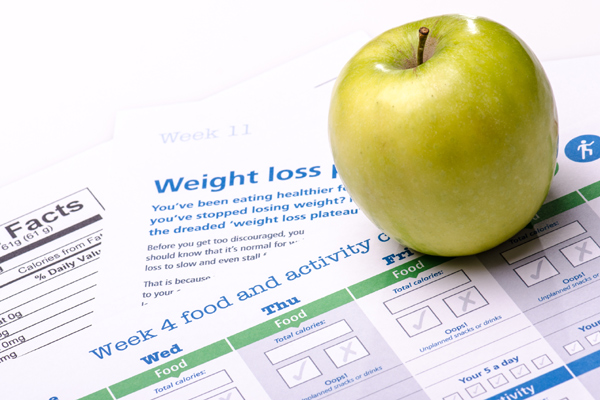
Find & Choose The Right Diet Plan
You've made the decision and you want to lose weight or tone up. Alongside any exercise you are going to do, you need to find and choose a suitable diet plan for you. How do you go about it?
When you're looking to lose a bit of weight or tone up, it helps to take a good look at what's involved with losing weight and what ways you can use in order to achieve your weight loss before you commit yourself.
Many people start on a new plan then quickly get discouraged when it's too difficult to maintain. Blaming themselves for a lack of willpower or no time, often the problem may lie with the diet plan as it is too difficult to maintain or hard to adhere to.
How to Identify a Bad Diet Plan
Before you dive into a new diet, why not check to see if any of the following red flags show up :
Miraculous Claims
You know the sort of thing - "lose 20 pounds in two weeks". Anything that claims to lose more than two to three pounds per week is unhealthy and unsustainable.
Very Low Calorie Plans
A typical woman needs around 1800-2000 calories per day, men around 2300-2500. A plan that goes much below 1200-1500 per day is going to be very restrictive.
Severely Restricted Food Intake
If a plan severely limits which foods you can eat, it will be difficult to sustain - you'll quickly get bored and head for the supermarket for something more interesting.
No Treats
Eating should be enjoyable. Banning all pleasurable food will simply make you miserable.
What Should You Look For?
There is always an alternative. You can either do the research yourself for a few hours, or if you really have no clue still, then get professional help.
If you're working it out for yourself, a dose of common sense will go a long way. Stick to a basic plan that includes:
- Plenty of water
- Regular meals
- Small portions
- Regular exercise
- Plenty of fresh fruit and vegetables
- A selection of low fat dairy, meat and fish
- Quality carbs - whole grains and fresh food
- Occasional treats
If this does seem to daunting for you the sort of professional help you could seek include :
- Doctor
- Nutritionist
- Personal trainer
- Reputable slimming club
Choosing Which Diet Plan
So you've sorted out in your own mind that you want to diet, now all you need to do is to identify which one you should choose and which ones to avoid.
There are such a wide variety of diets available that it might be quite a struggle to determine which of them will work and which won't. For example you may find that although restricting the foods you're eating may help you lose weight, the lack of calories will leave you light headed, constantly hungry and medically you could actually be doing yourself more harm than good.
For this reason, it is absolutely essential that prior to embarking upon any change in diet or lifestyle, you get the medical advice and nutritional information that ensures you are on the right diet plan and eating the right foods and the right quantities of those foods for your individual needs.
Key Things to Choosing The Right Diet
In our opinion, it comes down to 4 key steps that you need to think about.
One - Your Lifestyle
How does a diet fit in with what you do, the hours you work or whether you can cook or not! If you work long hours, then maybe extra exercise will prove difficult, don't cook and anything requiring complex recipes could be difficult (unless you eat Weight Watchers all the time). This is common sense, if you are truthful about your own circumstances.
Two - How Full On
How much weight do you want to lose? Half a pound a week is relatively easy, but if you are looking for 1 - 2 pounds a week then you will need to up the exercise you do.
Three - Learn About the Diet Plans
Research, research and more research. You need to learn more about all the plans to start with, then in depth knowledge of your chosen plan to ensure it works for you and that you can follow it accurately.
Four - Overall Benefits of Being Slimmer
This is about positive thinking. Imagine how you will feel when you've lost the weight and got fitter. What could you do, new clothes, new fitness clubs, take up a new sport. Write them down and put them up prominently to help motivate you! The fridge is always a good place to prevent you from snacking.
Most Popular
You may also be interested in...
How to Get The Right Diet For You?
Read our advice on how you can find the right diet advice before you choose your diet plan and it can help you choose which plan to followWhich Diet Plan Suits You?
For a free guide on which diet plan could suit you, why not use Slimming.co.uk to browse a huge number of diets available to you.Scarsdale Diet Plan
Get information about Scarsdale diet plan from slimming.co.uk. High protein with fats and carbs, it's been popular since the 70s and 80s.Grapefruit Diet Plan
Discover Grapefruit diet and information on slimming.co.uk. From advice and tips about plans through to foods and recipesThe Zone Diet Plan
Information on the Zone diet plan and how low carbs can really help you to lose weight. Read all our slimming plan tips and articles
